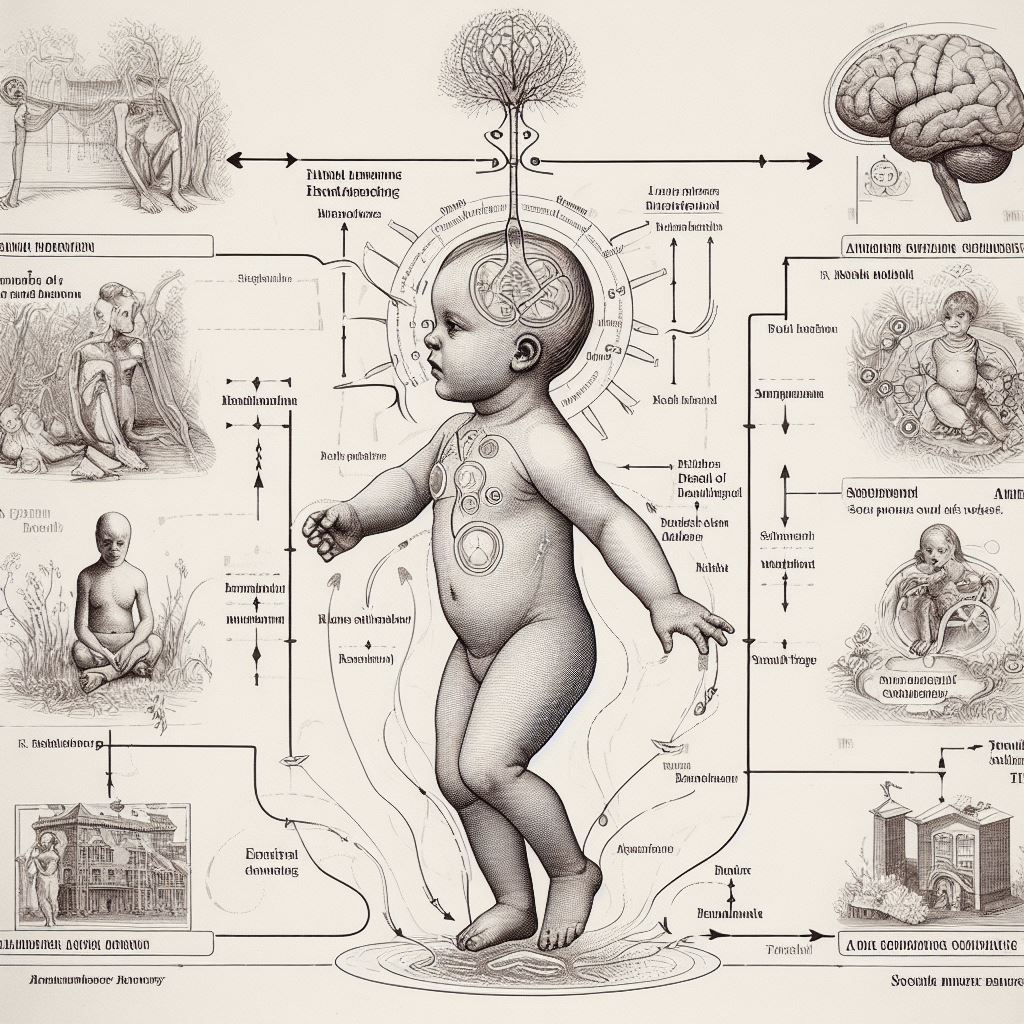Unlearn
Once upon a time in ancient China, there was a wise and renowned Zen master known not only for his profound teachings but also for his simple yet enlightening demonstrations. One day, a curious student approached eager to learn. The student asked the master to explain the nature of the mind and how to attain true enlightenment.
With a kind smile, the master gestured for the student to sit. He then began pouring tea into the student’s cup. The teacup was small, and soon it was full. But the master kept pouring, and the tea began to overflow, spilling onto the table and the floor.
The student, astonished, exclaimed, “Master, the cup is full! It can’t hold any more!”
The master calmly looked up at the student and said, “Like this teacup, you are full of your own opinions. How can you learn anything new unless you first empty your cup?”
Deconditioning
In a world inundated with information and ideologies that fill our minds with different ideas, it’s impossible to keep it empty for the new stuff. In the quest for self-discovery, it’s imperative to first shed the layers of societal conditioning. This process involves dismantling long-held beliefs and venturing into uncharted territories of thought.
To get the new information in, you have to unlearn a bit of what you’ve been conditioned to through all your life. Just as the teacup needed to be emptied before it could be filled again, so too must the mind be free from preconceptions and fixed ideas. Only after letting it go, one could unveil a profound truth: we are not confined to the limits of our physical form. Try to adopt a beginner’s mind, free from the constraints of what we think we already know.

We are not our body
Wise people and philosophers were pondering on the nature of our physical form. Our bodies are the vessels for the journey of consciousness, the transient vehicles through which we can navigate the world. No one can tell for sure what their soul looks like. We can’t see inside ourselves. Our body is like the space suit astronauts use to go out in space. The only difference is that you are always connected to your Earth-suit. Similar to the gigantic robots in the movie “Pacific Rim”. It’s a temporary home for the soul. The soul rents this body for the life time and if we’re lucky, and if some beliefs are true, it is returned to the ocean of consciousness in the end.
We are not ourselves
Perhaps, after all, you are you? Initially, the concept that we are not truly ourselves might appear perplexing. After all, isn’t our individuality the very essence of who we are?
Being human is a complex process that involves assimilating the culture of other humans and the world around us. We learn, we adapt, and we internalize the norms and values that surround us. Our minds are tirelessly processing and organizing the model of the world within us.
Humans cannot exist in isolation. Tales of mancubs raised by wolves, evolving into humans, are just tales. Actual Mowglis cannot speak, nor can they grasp language and culture. Being human is a process that happens in stages. After the key stage is passed it’s almost impossible to learn some key skills like walking or speaking. They are unable to ever become truly human, despite being organically 100% humans.
Our identity is not confined to the limits of our physical form. The essence of being human is not a solitary endeavor. It is intertwined with the fabric of existence. It is a neverending process of becoming. But not becoming yourself.
We absorb everything from other people
The phenomenon of a human brain is a miracle. As soon as the child comes into this world its brain starts sucking information like a vacuum. It absorbs everything. Just by looking and hearing other people speaking the child starts talking.
A newborn’s mind is like an empty cup waiting to be filled with the colors of the world. So it starts absorbing the essence of the environment. Constantly internalizing the world around. And we start imitating the world around us. We inherit not only the rituals but also the implicit biases, cultural norms, and societal narratives that shape their worldview. We are becoming the people we are surrounded by.
Their myths define your roles
In the history of human existence, myths and narratives have played a pivotal role in shaping cultures, norms, and individual identities. These stories passed down through generations, have the power to mold societal expectations and, subsequently, our roles within them.
The tales that have woven themselves into the fabric of our collective consciousness. They carry archetypes, morals, and ideals that serve as guideposts for how we perceive ourselves and others. Whether it be the Hero’s journey, the Damsel in distress, or the Wise mentor, these narratives provide a framework through which we navigate the complexities of life.
Yet, within this intricate web of stories, lies a subtle danger. When we allow ourselves to be defined by external narratives, we become characters in a script not of our own making. Relegated to roles prescribed by societal norms and expectations.
Think about the stories that have been handed down to you. Are they reflective of your authentic experiences and aspirations, or are they borrowed garments that no longer fit? Drop the narratives that no longer serve you. Craft a story that resonates with the truth of your being.
Be mindful of the sources from which you draw your narratives. Not all storytellers are living the lives they describe. In a world saturated with information, it is easy to be swayed by the voices of those who do not walk their talk. Steer towards the narratives that align with your values and aspirations.
Stop people from defining you. Be mindful of the information you take in. See where and who it is coming from. Navigate the sea of narratives that surround you with a discerning heart. Have the courage to discard those that no longer serve you. Be the author-hero, crafting a narrative that is uniquely and authentically your own.
Their vocabulary describes your world
Each word, a tiny ship, carries with it a cargo of meaning, shaping the landscapes of our minds. It is through this linguistic lens that we perceive, understand, and interact with the world.
Consider, for a moment, the power of your vocabulary. The words you choose are not mere labels; they are architects of your reality. They construct the walls of your perception and lay the foundation for your understanding. In this intricate process, you are not merely a passive observer, but an active participant, shaping your world with every word.
Words are not arbitrary symbols. They are carriers of culture, encapsulating generations of human experience. They encode the collective wisdom, beliefs, and narratives of societies. In this way, your choice of words connects you to a vast web of shared knowledge and history.
Our vocabulary also limits our perspectives. We cannot see what we cannot name. The words we habitually employ shape the boundaries of our thoughts. They can frame our experiences, filtering out nuances and possibilities that lie beyond their scope.
Thus the words you are using become the world you live in. Filter your vocabulary. See what descriptions you and others around you are using. With each new addition, you open a window to fresh perspectives, inviting a more nuanced and vibrant world into your consciousness.
In this dance of words and worlds, remember that you hold the pen to your narrative. With each phrase, you are not merely describing reality; you are actively participating in its creation. So, wield your vocabulary with intention and watch as the world reshapes itself before your very eyes.
Their beliefs become your religion
Religion, from Latin religare ‘to bind’ is a unified field of belief. It doesn’t have to be connected with the church or god or anything outherworldly. It’s a set of beliefs that you are holding on to.
And the funny part is, whatever you got used believing in, you will find the evidence for it. Then all superficial evidence will be used to support your beliefs.
It’s even more ridiculous with superstitions. You can’t really prove them wrong. Because they are not based on logic:
Black cats bring bad luck, unless you own one, apparently. Number 4 in China sounds like “death”, so they skip the fourth floor. That is similar to the number 13 in the West. Whistling indoors in Russia will cause financial difficulties. Broken mirrors, spilled salt, and walking under a ladder are all bad luck.
Growing up we start imitating the rituals, knocking on wood to ward off evil spirits. These rituals become something we believe in. Our religion. All based on the fear of the unknown.
Your mind makes it real.
It is not real
Our perceptions, beliefs, and interpretations are subjective constructs, influenced by a multitude of factors. We are happy to be fooled. Our minds are full of cognitive biases - mental shortcuts leading us to irrational judgments. These biases are a product of evolutionary processes, developed to help us make quick decisions in complex environments. We conquered the world, now they lead to misinterpretations of reality.
Start unlearning. Begin with meticulously trimming down the tree of your beliefs. Start with the ones that are not serving you, holding you back, whisper in your year. And you will see that most of them are just your imagination, they are not real and never were. Disown them. Sounds easy, but you lived with them all your life. They are not eager to leave. Just refuse to believe in them. And they will start wither away like plants without the water.
Negative thoughts are like cacti, they hold the fuel inside, so the process might take some time. Identify what is not serving you and don’t think it. Don’t feed it. Don’t water it. Don’t give it any attention. And it will die.
The Reading List
The Book
On the Taboo Against Knowning Who You Are
What, then, would be The Book which fathers might slip to their sons and mothers to their daughters, without ever admitting it openly?
